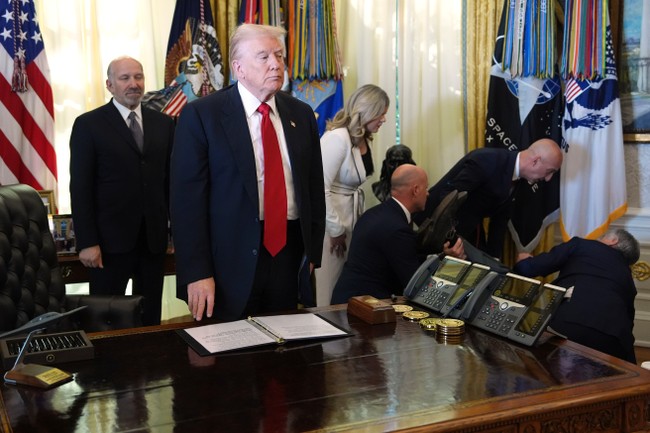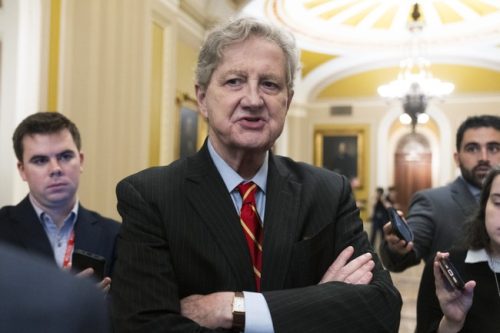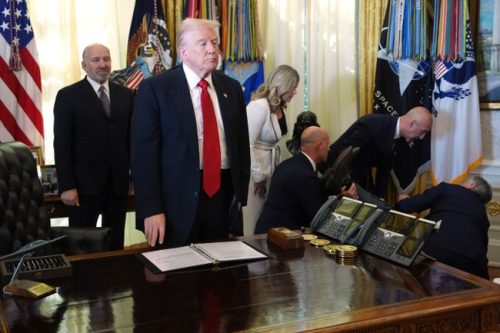President Trump announced a major deal to cut the sky-high prices of weight-loss drugs like Wegovy and Zepbound, tying the move to tariffs and domestic production while an Oval Office event was briefly interrupted by a medical emergency. Top officials framed the agreement as a win for working Americans and a tool to fight obesity and its enormous cost to the health system. The president emphasized tariffs as leverage, warned about a pending Supreme Court fight over his trade powers, and promised the new pricing framework will expand to future medicines through TrumpRx.gov.
The White House rolled out the announcement before a dinner with Central Asian leaders, and the tone was unmistakably populist: cheaper, more accessible medications for the American working class. FDA Commissioner Marty Makary explained the deal aims to bring down costs and rebuild domestic manufacturing for drugs that meet a clear public health need. Dr. Mehmet Oz, administrator for the Centers for Medicare & Medicaid Services, stressed the link between national wealth and national health, making the policy argument simple and direct.
The event was knocked off script when someone in the room became lightheaded and collapsed, prompting a quick response from medical staff and a momentary pause. Luckily the individual was fine, and the White House medical unit handled the situation swiftly and professionally. That pause did not stop some critics from hyping inaccurate narratives online, but the facts were clear and the focus returned to policy and results.
BREAKING: A man just collapsed during President Trump’s Oval Office announcement. Praying for him. 🙏 pic.twitter.com/Zx0tyHiXcA
— Breaking911 (@Breaking911) November 6, 2025
White House Press Secretary Karoline Leavitt addressed the interruption directly and said, “During the Most Favored Nations Oval Office Announcement, a representative with one of the companies fainted. The White House Medical Unit quickly jumped into action, and the gentleman is okay. The press conference will resume shortly.” The statement cut through the noise and kept attention on the substance of the deal rather than the brief scare. It also underlined how quickly officials moved to secure the scene and continue the business of government.
The pricing commitments will ditch the near-$1,400 per month tags that put these drugs out of reach for many families, and companies agreed to steep reductions. Gone are the days when Americans paid 525 percent more than counterparts abroad, according to the figures discussed at the announcement. HHS Secretary Robert F. Kennedy noted bold targets, claiming the pricing deal could help Americans shed 125 million pounds, a striking claim meant to frame the agreement in public health terms.
Trump insisted tariffs were a decisive bargaining chip in landing the deals, arguing that the trade lever forced better pricing and production terms from manufacturers. He framed tariffs as national security tools and credited them with massive revenue that financed tougher trade deals and renegotiations. The president argued the approach prevented conflicts and protected American interests, saying tariffs helped cool international tensions and strengthened the bargaining position of the United States.
The president was cautious about announcing new tariff moves while the Supreme Court weighs the scope of his authority, warning that a ruling against this use of tariffs would leave the country exposed. He made his point bluntly and personally, saying, “If I didn’t come along, we would’ve been destroyed by now.” That line reinforced the administration’s narrative that robust, sometimes unconventional tools are necessary to defend American workers and consumers.
Top officials were careful to temper expectations, calling the pricing agreement a major step but not a cure-all. Oz and Kennedy both said this is one important arrow in a larger quiver of policies to tackle obesity and its economic drag, which was cited as driving $1.75 trillion in health care costs. The deal also sets a precedent: these lower price commitments will extend to future drugs, signaling a longer-term shift in how the administration will negotiate on pharmaceuticals.
The administration announced TrumpRx.gov will launch at the end of the year so Americans can see the pricing changes and options available, tying the policy to a branded federal effort. The president punctuated the rollout with some characteristic bravado: “It better be successful—it has my name on it,” a line meant to convey both confidence and accountability. Meanwhile, he used the platform to rail against Democratic critics and their post-2024 messaging, arguing that voters deserve straightforward results, not slogans.
The practical outcome is clear: lower monthly costs for drugs that previously had astronomic price tags, new pressure on manufacturers to produce more domestically, and a renewed reliance on trade tools to get deals done. For working Americans who have long been shut out of these therapies by cost, the changes could be game changing. The White House framed the announcement as part of a broader effort to restore economic sanity and health access for ordinary families.






